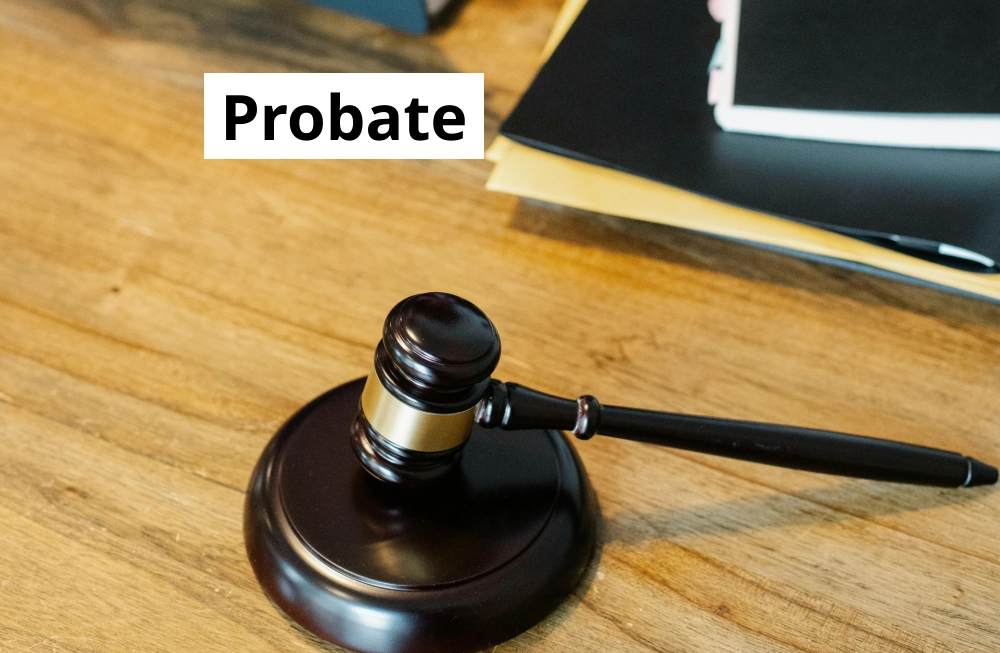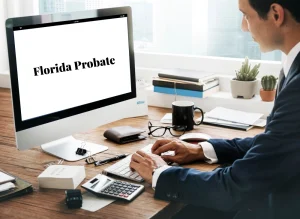
If you’re a non-U.S. citizen with assets in Florida or have loved ones who are not U.S. citizens but have passed away in the state, understanding the probate process is crucial. Florida probate law can be particularly complicated for foreign nationals, as the state’s laws intersect with international estate laws. Whether you’re dealing with the probate of a Florida property or the assets of a loved one, this guide will explain what non-U.S. citizens need to know about probate in Florida in 2025.
What is Probate and Why It Matters for Non-U.S. Citizens
Probate refers to a legal procedure that leads to administration of estate of a deceased individual, his debts are resolved and assets divided. The probate process typically involves validating the will, paying any outstanding debts, and transferring ownership of assets to the beneficiaries. For non-U.S. citizens, it’s essential to know that Florida’s probate laws still apply if the deceased owned property in Florida, even if the decedent lived outside the United States.
In Florida, probate proceedings are typically required for real estate, personal property, and even some bank accounts owned by the deceased. The type of probate (e.g., formal administration or summary administration) will depend on the size and complexity of the estate.
1. Understanding Florida’s Jurisdiction in Probate Cases for Non-U.S. Citizens
One of the key issues for non-U.S. citizens is understanding jurisdiction. Florida courts have jurisdiction over the probate of any Florida-based assets, regardless of the decedent’s citizenship. If a non-resident of the U.S. passes away and leaves behind property in Florida, the probate must be handled through Florida courts. This is especially important when dealing with real estate, as Florida requires specific legal procedures to transfer ownership.
2. Key Steps in the Probate Process for Non-U.S. Citizens
If you’re an executor or a beneficiary involved in the probate of a Florida estate, you must follow these essential steps:
- File the Will: As with any probate, the first step is to file the decedent’s will with the Florida probate court. If there’s no will, the estate will follow the state’s laws of intestacy (distribution according to Florida law).
- Appoint a Personal Representative: In Florida, the personal representative (executor) must be appointed by the court. Non-U.S. citizens can serve as the personal representative, but the court may require them to hire a Florida-based attorney to navigate the process.
- Identify and Value Assets: In Florida, all of the assets must be identified and appraised. This will comprise of real estate, personal property, and any other form of property with good value which could include bank accounts, securities and life insurance policies.
- Pay Debts and Taxes: Before assets are distributed, any debts and taxes must be paid. For non-U.S. citizens, there could be complications regarding foreign taxes or claims, so it’s important to work with both a Florida probate attorney and possibly an international tax professional.
- Distribute the Estate: Once debts are settled, the assets can be divided to the beneficiaries as outlined in the will or as per Florida’s laws. Florida probate courts require proper documentation before transferring property or funds to non-U.S. citizen beneficiaries.
3. Unique Challenges for Non-U.S. Citizens in Florida Probate
While the probate process remains the same for non-U.S. citizens in many ways, there are several unique challenges to be aware of:
- Foreign Heirs and Beneficiaries: If the decedent’s heirs or beneficiaries are foreign nationals, they may face additional hurdles when it comes to transferring assets or gaining access to funds. For example, some foreign beneficiaries may face difficulties in establishing their identity or proving their relationship to the decedent in Florida courts.
- International Wills: Some non-U.S. citizens may have created wills in their home countries that conflict with Florida law. Florida will generally honor foreign wills if they meet certain requirements, but it’s important to consult with a probate attorney to ensure compliance.
- Tax Implications: U.S. estate and gift tax laws apply to non-U.S. citizens who own property in the U.S. Any amount of estate exceeding a threshold can be liable to estate taxes. Additionally, non-U.S. citizens may be subject to withholding taxes on certain distributions, so it’s critical to have a tax professional assist with these matters.
- Bank Accounts and Foreign Assets: Non-U.S. citizens may also face complications when dealing with foreign bank accounts or assets outside of Florida. Coordination with international legal professionals is often needed to handle these types of assets effectively.
4. Choosing the Right Probate Process for Non-U.S. Citizens
There are two kinds of probate, in Florida:
- Formal Administration: This is the ordinary probate eligibility which probates estates that fail to have either summary administration. It entails the oversight of the court and it is slower usually when it is an international matter.
- Summary Administration: Available for estates that have less than $75,000 in assets or when the decedent has been deceased for more than two years. This option is often quicker, but non-U.S. citizens may not be eligible for summary administration if there are complications regarding foreign assets or beneficiaries.
- For non-U.S. citizens, formal administration is often the more reliable process, as it provides a clearer path for handling international issues, asset distribution, and creditor claims.
5. Common Pitfalls and How to Avoid Them
As a non-U.S. citizen involved in Florida probate, there are several common mistakes to avoid:
- Failure to Comply with Florida Law: Even if the decedent was not a U.S. citizen, Florida law will still govern the probate process for any Florida-based assets. Ensure that you comply with Florida’s probate requirements, such as timely filing and providing the correct documentation.
- Not Hiring an Attorney: Florida probate can be complex, especially for non-U.S. citizens. It is of great essence that you deal with an experienced Florida probate attorney to make sure that you satisfy all the legal requirements and do not have to face delays.
- Ignoring Foreign Tax Laws: Probate is not just about distributing assets—it also involves paying taxes. Be sure to consult with a tax expert familiar with both Florida tax laws and international taxation to avoid unexpected tax liabilities.
6. Helpful Resources for Non-U.S. Citizens Navigating Florida Probate
To navigate Florida probate as a non-U.S. citizen, it’s important to use the right resources:
- Florida Probate Court: The Florida court system offers guidance on the probate process, including necessary forms and instructions.
- Florida Probate Attorneys: A Florida probate attorney can help you understand the nuances of probate law, handle the complexities of foreign assets, and ensure compliance with both state and international law.
- IRS and Estate Tax Advisors: Non-U.S. citizens may need assistance from estate tax professionals to navigate any U.S. estate or inheritance taxes that apply.
Conclusion
Navigating Florida probate as a non-U.S. citizen can be a complex and challenging process. Whether you’re an executor, heir, or beneficiary, understanding Florida’s probate laws and working with the right legal and tax professionals is essential to making sure that the wealth is divided in the way that suits the deceased person and in compliance with the law. Be sure to stay informed about the latest updates in probate law for 2025 to avoid costly mistakes and complications.



